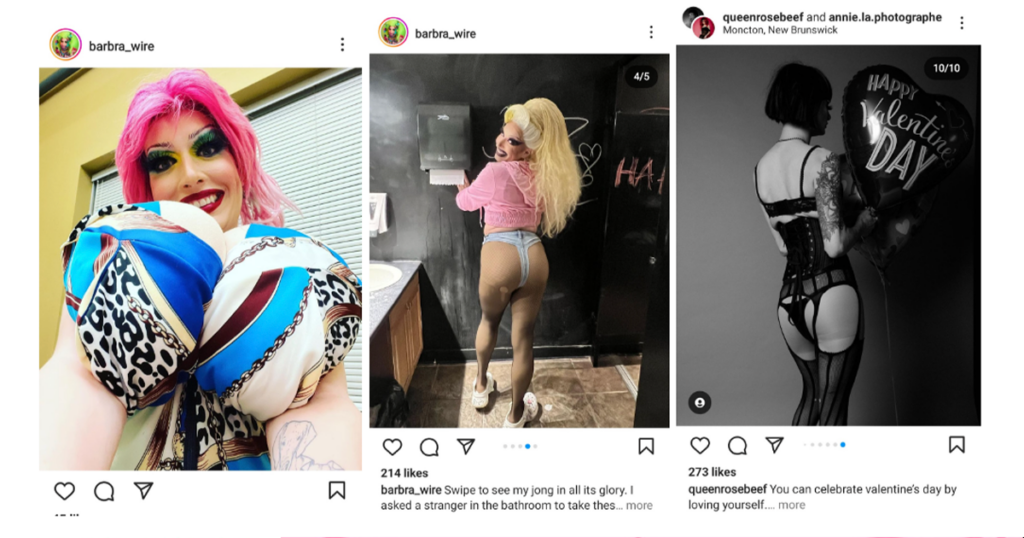The CBC recently published a six-minute video segment where two drag queens, one male (“Rose Beef”) and one female (“Barb Wire”) sat down with New Brunswick schoolchildren for “an honest conversation about drag, gender and dress-up.”
Drag queens are generally male, so the CBC presumably included a female to avoid the optics of having two adult men trying to be all cutesy with young kids at school.
Alongside public libraries and other cultural institutions, the CBC seems to have a mission to promote drag queens to young children in particular. In 2019, the state broadcaster released a documentary called “Drag Kids.”
A foray into the public Instagram pages of Barb Wire and Rose Beef shows them displaying their thonged buttocks to the camera, posing in lingerie, and flaunting giant fake breasts (à la Kerry Lemieux, the infamous Oakville Trafalgar teacher who gets off on wearing kink gear in a school learning environment).

Couldn’t the CBC find one single drag queen who doesn’t have sexually explicit pictures on their social media page? It is perhaps a futile question, as virtually any drag queen you look up on social media will have a fixation with being sexually provocative. Even former mayor John Tory has been filmed stuffing bills into a drag performer’s underwear.
If Rose Beef, Barb Wire and other adults wish to post public pictures of themselves scantily clad, then fine! But why the push to have these individuals become role models and life lesson-teachers for kids?
It’s hard not to come off as prudish or square when denouncing drag queen story hours or questioning why some feel a need to expose children to men who like to wear clownish makeup and wigs.
Admittedly, I have never watched RuPaul’s Drag Race, and I have never attended a drag show or drag queen story hour. I am simply not attracted to the gaudy aesthetic of drag queens and I am unsure how being in their presence would enhance my life.
But the CBC segment had an insidious subcurrent: these children were nervous as they eyed the drag queens up and down.
“Why are you nervous?” Barb Wire asked a boy.
“I’ve never met anyone that’s not… I can’t really explain,” he answered. The boy seemed old enough to understand the concept of self-censorship.
“Is this your first time seeing a drag queen?” Rose Beef asked a girl. “How does that make you feel?”
“Excited but a little bit nervous,” she responded, with an uncertainty coming across in her eyes.
These children understand that if they want to be nice boys and girls, they have to please the adult drag queen sitting across from them. They have to submit and nod along with what that drag queen is saying, and seek the approval of the drag queen – they have to hold back what they really think. After all, the grownups they trust (their parents and teachers) were the ones who told them to go sit face-to-face with the drag queen. The undercurrent is of course the drag queens’ sexualized nature, which the children may be able to detect – but the drag queens have plausible deniability by claiming they are just engaging in fun dress-up time. The children are taught that they should get along with, and be nice to, people who actually give them the creeps.
Yes, it is grooming.





















